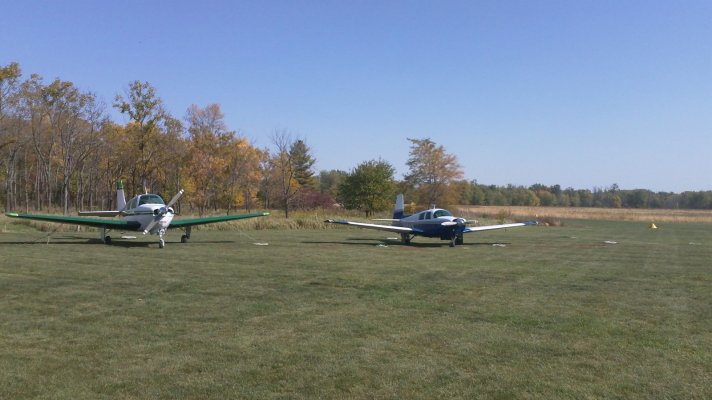dm
Full time employment: Posting here.
Hey, small world. Washington Courthouse was one of my nav checkpoints on my first solo cross country.
Sounds like you guys had a good trip. It's nice when the trip can be moved if the weather is poor, etc. Seemed a bit breezy yesterday, I hope you guys didn't get bounced around too much.
We had to stay low for about 75miles due to the overcast, but didn't get bounced around to much. The only exciting part of the flight was when I was switching tanks and the engine quit for a few seconds. I had run the tank that I was switching to pretty low on the way out and I guess I had some air in the line. My wife didn't know what was going on and was not real happy. But she say's she is ready to go again, just keep the engine running.

